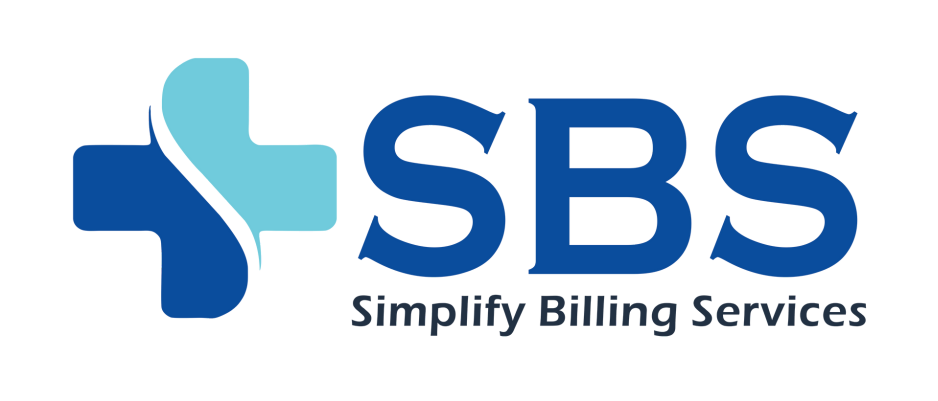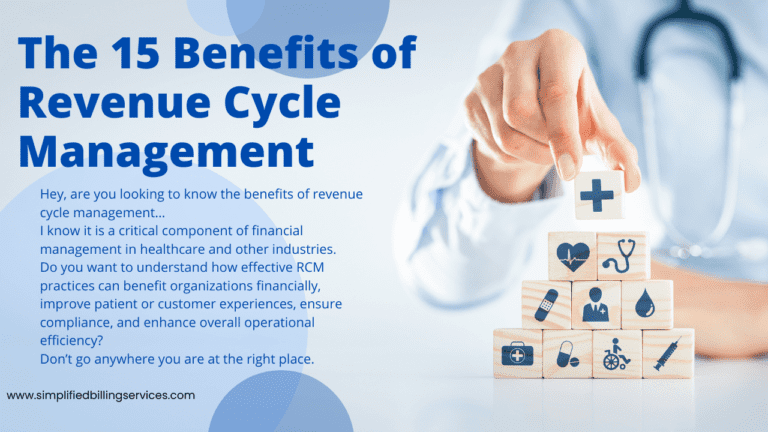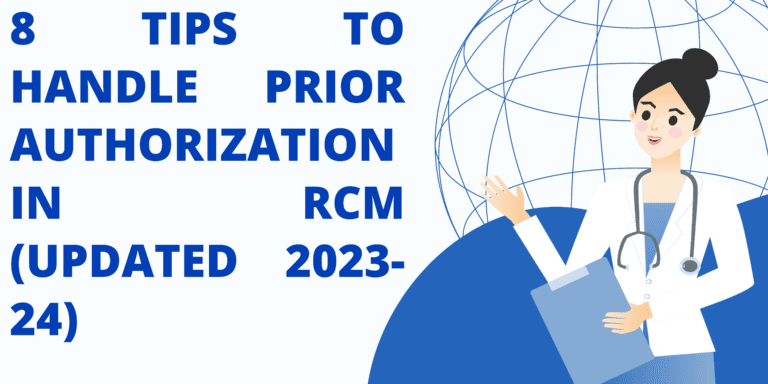As a seasoned healthcare revenue cycle management professional, I’ve spent decades navigating the intricate maze of financial intricacies within the healthcare industry. In this comprehensive guide, I’ll draw upon my extensive experience to shed light on a critical strategy for healthcare providers: outsourcing revenue cycle management (RCM). The journey we’re about to embark on isn’t just about the financial well-being of healthcare institutions; it’s a pivotal move towards optimizing patient care, improving operational efficiency, and securing long-term financial stability.
What is Revenue Cycle Management?
Revenue cycle management (RCM) is a comprehensive approach to managing the financial aspects of healthcare services. It encompasses all administrative and clinical functions that contribute to the capture, management, and collection of patient service revenue.
Outsourcing RCM: A Strategic Decision
Let me be clear; outsourcing RCM is not just a cost-cutting strategy. It’s a strategic move that can positively transform the way healthcare providers manage their finances, streamline their operations, and, most importantly, enhance the quality of patient care. Here’s why it’s a decision that has proved its worth time and time again:
8 Critical Reasons to Outsourcing Revenue Cycle Management Can Benefit Healthcare Providers
Let’s begin with the reasons to consider when outsourcing revenue cycle management.
1. Specialized Expertise
Outsourcing RCM means tapping into the expertise of dedicated professionals who eat, sleep, and breathe healthcare finances. They are well-versed in the intricate world of medical coding, billing regulations, and payer intricacies. This level of specialization can significantly reduce claim denials, improve accuracy, and expedite the reimbursement process.
2. Financial Stability
Revenue leakage is a pervasive issue in healthcare. Unbilled services, coding errors, and delayed claims can result in substantial revenue loss. By outsourcing RCM, providers can ensure a tighter grip on their finances, reducing revenue leakage, and enhancing financial stability.
3. Focus on Core Competencies
Healthcare providers should be dedicating their resources to patient care, not navigating the complexities of billing and claims. Outsourcing RCM allows healthcare institutions to refocus on their core competencies, delivering exceptional patient care and leaving the financial intricacies to the experts.
4. Scalability and Flexibility
The healthcare landscape is ever-changing, with evolving regulations and shifting patient demographics. Outsourced RCM services offer scalability and flexibility, adapting to the unique needs of each provider. This means your RCM strategy can grow and evolve with your institution.
5. Enhanced Data Security and Compliance
Data security and compliance are paramount in healthcare. By partnering with reputable RCM outsourcing firms, providers can rest assured that their data is in safe hands. These firms invest heavily in secure data management and compliance adherence.
6. Improved Patient Experience
A seamless and hassle-free billing process contributes to patient satisfaction. By outsourcing RCM, providers can streamline billing and claims, reducing the administrative burden on patients and enhancing their overall experience.
7. Cost-Efficiency
While cost-cutting isn’t the primary goal of outsourcing RCM, it does result in significant cost savings. Outsourced services often prove more cost-effective than maintaining an in-house RCM department, especially for smaller and mid-sized healthcare providers.
8. Performance Metrics and Reporting
Outsourcing RCM offers providers access to in-depth performance metrics and reporting. This data-driven approach allows institutions to make informed decisions and continuously improve their financial strategies.
The Modern Challenges in Healthcare RCM
The landscape of healthcare revenue cycle management has evolved significantly over the years. With the introduction of complex billing and coding systems, stricter regulatory compliance, and the ever-changing insurance environment, healthcare providers are continually facing challenges in managing their revenue cycles effectively. This is where outsourcing steps in as a game-changing solution.
Trends and Developments in Healthcare RCM Outsourcing
Recent trends in the Healthcare RCM Outsourcing market indicate a consistent and robust growth pattern, expected to continue positively until 2030. A prominent trend in the industry is the increasing demand for environmentally sustainable and eco-friendly products, aligning with the healthcare sector’s growing emphasis on sustainability.
Additionally, the industry is witnessing the rising incorporation of state-of-the-art technologies, including artificial intelligence, machine learning, and blockchain, to enhance the quality and efficiency of RCM services. These technological advancements are creating innovative products that surpass conventional options in terms of effectiveness and efficiency.
To further validate the positive outlook, the global Healthcare RCM Outsourcing market size is projected to reach multimillion figures by 2030, displaying an unexpected compound annual growth rate when compared to the figures observed in 2021.
Companies Covered: Healthcare RCM Outsourcing Market
The industry leaders, including:
- CHN Energyand several others, are well-positioned to drive market growth through various strategies.
They focus on offering innovative and high-performance products, taking advantage of advancements in technology. Expanding distribution channels and strategic partnerships can strengthen their market presence and enhance competitiveness.
Choosing Your Outsourcing Partner
It’s crucial to remember that outsourcing RCM isn’t a one-size-fits-all solution. Each healthcare provider’s needs and challenges are unique. When considering this strategy, partner with a reputable RCM outsourcing firm that can tailor their services to your specific requirements. Collaborative communication, a clear understanding of goals, and shared values are the pillars of a successful partnership.
You Can Choose to Simplify Billing Services to Outsource Revenue Cycle Management
Are you tired of the complexities of managing your revenue cycle?
Is your current billing process causing more headaches than profits?
It’s time to make a change and streamline your revenue cycle management.
Outsourcing your billing services is the solution you’ve been looking for. With experts handling your revenue cycle, you can focus on what truly matters – providing exceptional care to your patients.
Why choose us for Revenue Cycle Management?
Efficiency: Our dedicated team ensures that your billing processes are carried out with precision and efficiency, reducing errors and maximizing revenue.
Cost-Effective: Outsourcing eliminates the need for expensive in-house billing teams and technology. You only pay for the services you need.
Compliance: Stay up-to-date with the latest healthcare regulations, ensuring that your practice remains compliant and protected.
Improved Cash Flow: Accelerate your revenue cycle, getting you paid faster and increasing your bottom line.
Expertise: Access a team of experienced professionals who specialize in healthcare revenue cycle management.
Don’t let billing complexities slow down your healthcare practice. It’s time to simplify and optimize your revenue cycle management by outsourcing to us.
Contact us today to learn more about how we can streamline your billing services and enhance your revenue cycle management. Make the smart choice for your practice’s financial health!
Emphasizing Patient-Centric Benefits
While outsourcing RCM, it’s crucial to recognize the patient-centric benefits it brings. Streamlined billing processes reduce stress for patients significantly. Patients encounter fewer billing-related hassles and frustrations. They are not burdened with deciphering complex bills, questioning unexpected charges, or navigating the intricacies of insurance claims. This, in turn, leads to improved patient satisfaction and a more positive perception of the healthcare provider.
Patients can focus on their recovery and well-being, confident that the financial aspects are being managed efficiently. The reduced administrative burden on patients enhances their overall healthcare experience, promoting trust and a sense of care that transcends clinical treatment. This patient-centric approach is at the heart of healthcare, and outsourcing RCM supports this goal.
Addressing Potential Concerns
Before making the decision to outsource RCM, it’s essential to acknowledge and address potential concerns or challenges that may arise:
Data Security: Data security is a top priority in healthcare. When outsourcing RCM, ensure that your chosen partner complies with all relevant regulations, especially the Health Insurance Portability and Accountability Act (HIPAA). Assess their data security measures and their track record in safeguarding sensitive patient information.
Transitioning from In-House to Outsourced RCM: Transitioning from an in-house RCM department to an outsourced model can be a significant change. It’s essential to have a well-defined transition plan in place, including a clear understanding of roles and responsibilities during and after the transition.
Change Management: Change within healthcare institutions can be met with resistance. Address change management by involving key stakeholders, providing training and education, and fostering a culture of adaptability.
Offering a Cost-Benefit Analysis
To help you make an informed decision about outsourcing RCM, let’s delve into a cost-benefit analysis:
Costs of In-House RCM:
- Personnel costs for hiring and maintaining an in-house RCM team.
- Costs of RCM software and technology.
- Ongoing training and development expenses for staff.
- Overheads related to office space and infrastructure.
Benefits of Outsourcing RCM:
- Access to specialized expertise without the overhead costs of in-house staff.
- Reduced claim denials and increased revenue collection.
- Improved patient experience, resulting in higher patient satisfaction and retention.
- Scalability and flexibility in adapting to changing healthcare dynamics.
- Enhanced data security and compliance.
- Cost savings in terms of office space and infrastructure.
Return on Investment (ROI):
The return on investment for outsourcing RCM can be substantial. While the exact ROI may vary depending on the size and specific needs of your healthcare institution, it’s not uncommon to see a significant increase in revenue collection, a reduction in claim denials, and improved patient satisfaction. These factors, combined with cost savings, contribute to a positive ROI.
Navigating the Outsourcing Journey
It’s important to note that outsourcing RCM isn’t a one-size-fits-all solution. Each healthcare provider’s needs and challenges are unique. When considering this strategy, it’s crucial to partner with a reputable RCM outsourcing firm that can tailor their services to your specific requirements. Collaborative communication, a clear understanding of goals, and shared values are the pillars of a successful partnership.
Outsourcing Revenue Cycle Management Frequently Asked Questions (FAQs)
Is outsourcing RCM suitable for small healthcare providers?
Yes, outsourcing RCM can benefit providers of all sizes. Smaller providers often find outsourcing particularly cost-effective, as it allows them to access specialized expertise and resources without the overhead costs of an in-house RCM department.
How do I choose a reputable RCM outsourcing partner?
Look for partners with a proven track record in healthcare RCM, strong data security measures, and a commitment to compliance. Consider their experience, client testimonials, and adaptability to your institution’s specific needs.
Can outsourcing RCM help reduce claim denials?
Yes, outsourcing RCM typically leads to a significant reduction in claim denials due to the specialized expertise and meticulous approach of RCM professionals.
What’s the typical cost structure for outsourcing RCM?
The cost structure varies but is often based on a percentage of the collections or a fixed fee. It’s essential to understand the pricing model and ensure it aligns with your institution’s budget and objectives.
How can outsourcing RCM improve the patient experience?
By streamlining the billing process, reducing claim errors, and addressing issues promptly, outsourcing RCM helps improve the overall patient experience. Patients encounter fewer billing-related hassles and frustrations.
What compliance standards should an outsourcing partner adhere to?
Your outsourcing partner should comply with the Health Insurance Portability and Accountability Act (HIPAA) and other relevant regulations, ensuring the security and confidentiality of patient data.
Conclusion
In conclusion, as a seasoned professional in healthcare revenue cycle management, I can confidently state that outsourcing RCM is a strategic move that has the potential to revolutionize the financial well-being and patient care quality of healthcare providers. With specialized expertise, financial stability, a focus on core competencies, scalability, enhanced data security, improved patient experiences, cost-efficiency, and performance metrics, it’s a decision that’s worth serious consideration.
The choice to outsource RCM is an investment in the future of healthcare, and it’s a step toward a more efficient, patient-centric, and financially secure healthcare environment.
Note:
The Healthcare RCM Outsourcing market is also displaying consistent growth and sustainability, further reinforcing the advantages of this strategic decision. The incorporation of sustainable practices and innovative technologies, such as artificial intelligence and blockchain, is reshaping the industry, ensuring long-term viability.





